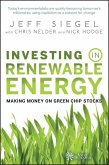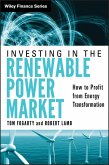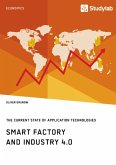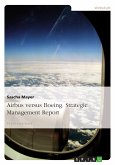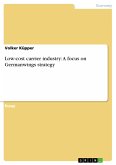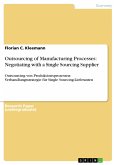Essay from the year 2008 in the subject Business economics - General, grade: 1,7, University of Applied Sciences Constanze, course: Economic and Social Sciences, language: English, abstract: Nowadays, it is unimaginable for people, at least in industrialized countries, not to have any access to energy sources. For the industry sector it is the basic precondition for its existence. For every little step within the production process, being the production of a good itself, the handling with raw materials or the transportation of the final product to the customer, plenty of energy is required. Private households also consume a lot of energy. But due to the global population growth, the available earth's resources have come under enormous pressure to meet the humans' energy needs (Pérez Latorre, 1999, p. 2). In the last 30 years the world's population has grown by more than 30% (www.weltbevoelkerung.de) and reached the present status of about 6.6 billion people (www.cia.gov). The total energy consumption has even increased more quickly comparing to the number of people on the planet. At the same time the population continues to grow and is estimated to reach about 9.1 billion people by the year 2050 (www.un.org). As the supply of oil, gas, coal and uranium, so called classic energy resources, is quite limited, the increase of population could result in the energy supply shortfall with considerable economic and social consequences. But this is not the only problem. The reserves of fossil fuels are distributed unequally over the globe (BMU, Renewable Energies - Innovations for the future, 2006, p. 11). The high dependence of energy-hungry industrial countries from energy supplying countries can even lead to political conflicts. Furthermore the use of these energy resources has significant environmental effects. The capacity of the environment to absorb the waste produced by the energy consumption is strictly limited, too. These waste products not only damage the environment, but also are harmful to the human health (BMU, Renewable Energies - Innovations for the future, 2006, p. 12). The challenge of this essay is to analyse, whether and if so which alternative energy sources are to be considered as an answer to the problems mentioned above. Thereby I want to examine sustainable energy resources in order to find out, whether their utilization make sense politically, economically and environmentally. First I will provide general information about renewable energies and give an overview of main renewable energy sources. Finally I will focus on geothermal energy, analysing this energy source more detailed.
Dieser Download kann aus rechtlichen Gründen nur mit Rechnungsadresse in A, B, BG, CY, CZ, D, DK, EW, E, FIN, F, GR, HR, H, IRL, I, LT, L, LR, M, NL, PL, P, R, S, SLO, SK ausgeliefert werden.



